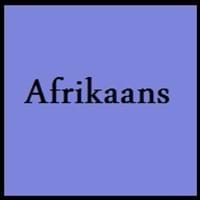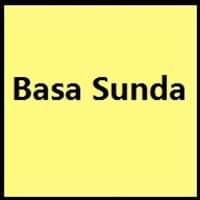Afrikaans and Sundanese
Countries
South Africa
West Java
National Language
South Africa
Indonesia
Second Language
Namibia, South Africa
Not spoken in any of the countries
Speaking Continents
Africa
Asia
Minority Language
Botswana, Lesotho, Malawi, Swaziland, Zambia, Zimbabwe
Not spoken in any of the countries
Regulated By
Die Taalkommissie, National Languages Committee
Not Available
Interesting Facts
- Afrikaans Language is a mixture of English, Dutch, German, French and some South African language like Xhosa.
- Afrikaans Language lacks case and gender distinctions.
- The Sundanese language is second most widely spoken regional language in Indonesia.
Similar To
Dutch Language
Madurese and Malay Languages
Derived From
Dutch Language
Not Available
Alphabets in
Afrikaans-Alphabets.jpg#200
Sundanese-Alphabets.jpg#200
Scripts
Latin
Latin, Sundanese
Writing Direction
Left-To-Right, Horizontal
Left-To-Right, Horizontal
Language Levels
Not Available
Time Taken to Learn
Not Available
How Are You?
Hoe gaan dit
Kumaha kabarna?
Good Night
goeie nag
Wilujeng kulem
Good Evening
Goeienaand
Wilujeng wengi
Good Afternoon
Goeie middag
Wilujeng siang
Good Morning
goeie more
Wilujeng énjing
Bye
Not Available
Wilujeng angkat
I Love You
Ek het jou lief
Abdi bogoh ka anjeun
Excuse Me
Verskoon my
Punten
Dialect 1
Kaapse Afrikaans
Western dialect
Where They Speak
Not Available
Banten
Dialect 2
Oranjeriverafrikaans
Northern dialect
Where They Speak
Not Available
Bogor
Dialect 3
Baster Afrikaans
Priangan dialect
Where They Speak
Namibia
Bandung
Speaking Population
Not Available
Second Language Speakers
Not Available
Native Name
Afrikaans
Not Available
Alternative Names
Cape Dutch
Priangan, Sunda
French Name
afrikaans
soundanais
German Name
Afrikaans
Sundanesisch
Pronunciation
[ɐfriˈkɑːns]
Not Available
Ethnicity
Afrikaners
Sundanese, Bantenese, Cirebonese, Badui
Origin
17th Century
5th century AD
Language Family
Indo-European Family
Austronesian Family
Subgroup
Germanic
Indonesian
Branch
Western
Not Available
Early Forms
Cape dutch or kitchen dutch
No early forms
Standard Forms
Standard Afrikaans
Sundanese
Signed Forms
Signed Afrikaans (signs of SASL)
Not Available
Scope
Individual
Individual
ISO 639 6
afrs
Not Available
Glottocode
afri1274
sund1251
Linguasphere
52-ACB-ba
No data available
Language Type
Living
Living
Language Linguistic Typology
Subject-Object-Verb
Subject-Verb-Object
Language Morphological Typology
Analytic
Not Available
All Afrikaans and Sundanese Dialects
Most languages have dialects where each dialect differ from other dialect with respect to grammar and vocabulary. Here you will get to know all Afrikaans and Sundanese dialects. Various dialects of Afrikaans and Sundanese language differ in their pronunciations and words. Dialects of Afrikaans are spoken in different Afrikaans Speaking Countries whereas Sundanese Dialects are spoken in different Sundanese speaking countries. Also the number of people speaking Afrikaans vs Sundanese Dialects varies from few thousands to many millions. Some of the Afrikaans dialects include: Kaapse Afrikaans, Oranjeriverafrikaans. Sundanese dialects include: Western dialect , Northern dialect. Also learn about dialects in South American Languages and North American Languages.
Afrikaans and Sundanese Speaking population
Afrikaans and Sundanese speaking population is one of the factors based on which Afrikaans and Sundanese languages can be compared. The total count of Afrikaans and Sundanese Speaking population in percentage is also given. The percentage of people speaking Afrikaans language is Not Available whereas the percentage of people speaking Sundanese language is 0.57 %. When we compare the speaking population of any two languages we get to know which of two languages is more popular. Find more details about how many people speak Afrikaans and Sundanese on Afrikaans vs Sundanese where you will get native speakers, speaking population in percentage and native names.
Afrikaans and Sundanese Language Codes
Afrikaans and Sundanese language codes are used in those applications where using language names are tedious. Afrikaans and Sundanese Language Codes include all the international language codes, glottocodes and linguasphere.





